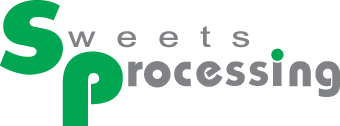Maturus Finance GmbH
How Sale & Lease Back can guarantee liquidity
Germany’s confectionery sector is a job driver: In 2016, roughly 50,000 employees have generated an annual turnover of € 11.9 bn. In addition to cocoa and chocolate products, lines of business also include pastries, bonbons, snacks, brand ice cream, chewing gum and raw mixtures such as marzipan.
Author: Carl-Jan von der Goltz, Managing Partner, Maturus Finance GmbH
According to current information provided by the Federal Association of the German Sweets Industry (BDSI), the state of business in 2016 has held steady, thanks to the improved order situation. Having said that, the profit situation does remain tense. Manufacturers are facing challenges such as the high level of concentration that translates into a dependency on food retailers. Rising regulatory demands and difficult recruitment of qualified professionals, too, are an increasing cause of concern to the industry.
Therefore, a sufficient degree of liquidity to drive a favourable development in the manufacture ring segment is of the essence. More and more businesses in the sweets sector have embraced a strategic financing mix: the traditional bank-based approach is being bolstered by alternative models such as factoring, Sale & Lease back or purchase financing, thus ensuring a maximum of scope for action and independence based on the collaboration with several financiers.
Causes for additional liquidity requirements
A number of different causes such as the development of the product and service portfolio, innovation processes, reorganisations, expansions, mergers or corporate successions repeatedly create a demand for additional funding. For confectionery businesses, the Sale & and Lease back approach presents an attractive method of financing to leverage inner reserves and create additional liquidity. Sale & lease back means that second-hand machine outfits and plants – so-called assets – are sold away only to be immediately leased back. This means that tied-up money is leveraged in a purely internal financing process for a quick infection of liquidity, while the company continues to use the equipment without interruption. What’s more, since the leasing instalments constitute deductible operating expenses, they can be computed within the existing creative possibilities as partial or full amortisation agreements in such a way that it’s possible to pay them out of the company’s cash flow.
A key advantage of the Sale & and Lease back approach is that financial standings take a back seat in the financing decisions, because it’s the intrinsic value and fungibility of the equipment that is the decisive factor. Thus, under certain conditions, the model is workable for companies even in insolvency situations, e. g. to permit a market relaunch.
The workings
In practice, the course of events is as follows: Initially, all of the company’s non-current assets are subjected to a preliminary analysis. This is carried out either within a desktop assessment based on a detailed asset and leasing schedule or a fair value statement which may already be on hand. Following submission and acceptance of an indicative quote, the machine outfit is put to an expert evaluation as to its fair value, which forms the backbone of the Sale & Lease back agreement. Drawing up the agreement, however, requires further documents such as abstracts of title or the release of securities by a bank. Once the documentation is complete, nothing stands in the way of a swift execution.
On average, the process from the initial meeting to the validation takes about six to eight weeks. Therefore, Sale & Lease back is a possibility to raise capital swiftly and outside of banks that is available without any qualification. In most cases, the financing volume is between € 300,000 and 10 m.
Maturus Finance GmbH is a financing company without ties to any particular bank, offering innovative ways of corporate funding. The financial service provider caters to medium-sized producers looking for alternatives to existing bank connections and wanting to expand their entrepreneurial scope within existing capital structures. Financing solutions start at a volume of € 300,000 and range up to € 10 m or even more in individual cases. This mostly corresponds to turnover volumes of a given company of approx. € 5 to 200 m. Having its principal place of business in Hamburg, Germany, Maturus Finance has expanded into Austria in 2015.



